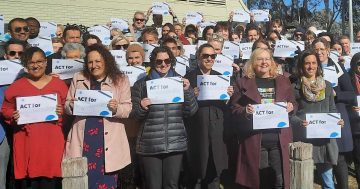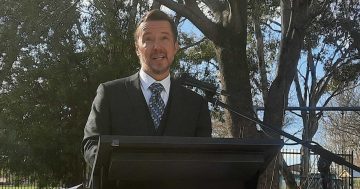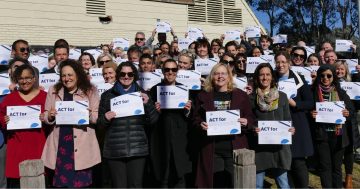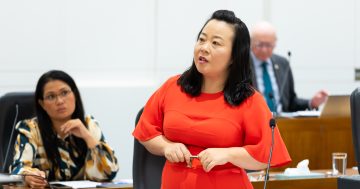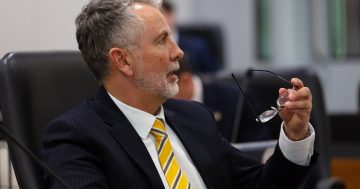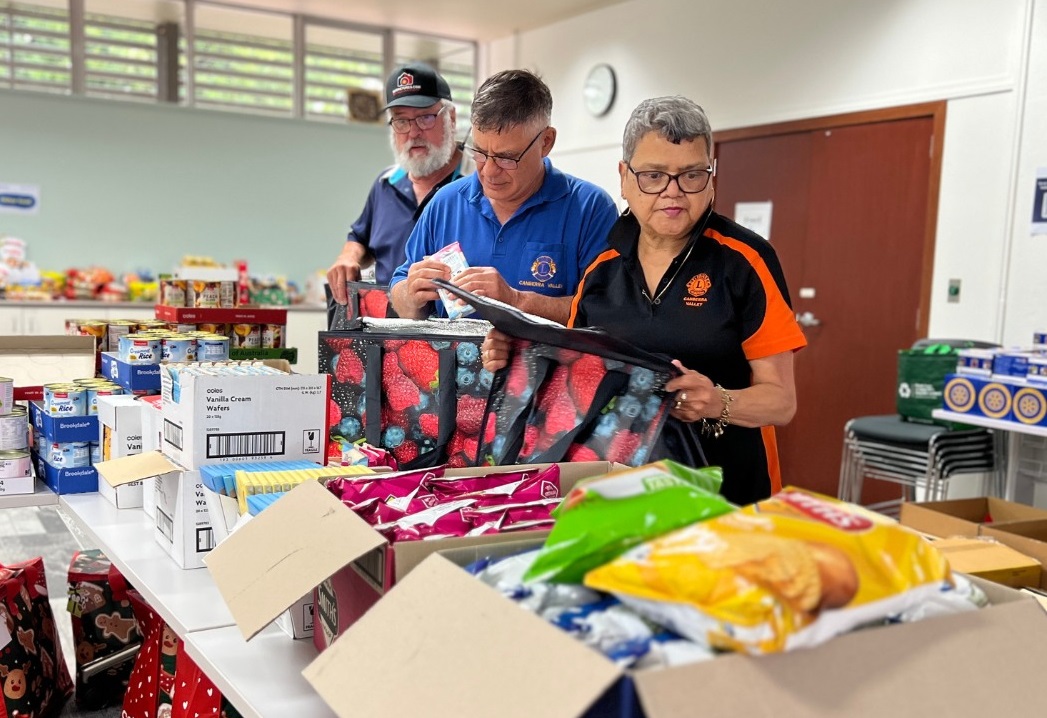
Food banks such as Vinnies’ operation have been overwhelmed during the cost-of-living crisis. Photo: Facebook.
It’s a sad state of affairs when the organisations that give people doing it tough a hand up have to put their own hands out to keep going.
This week more than 50 of them came together to launch a new campaign for greater government funding.
With an election looming in the spring, the community sector, spearheaded by the ACT Council of Social Services, braved the chill of their winter of discontent to paint a disturbing picture of the dire circumstances organisations face.
ACTCOSS couldn’t name them, but at least two are at risk of trading while insolvent.
At a time when the sector’s services across food relief, housing, mental health and disability are in more demand than ever, the built-in structural deficiencies from years of underfunding mean it could collapse.
Funding has not kept pace with population growth, cost of living increases have driven even the employed, homeowners and private renters to food banks and, unsurprisingly, mental illness has increased.
Disability services, in particular, are stretched to breaking point.
While the ACT’s housing stocks have improved thanks to the apartment boom, public housing waiting lists are still lengthy and genuinely affordable properties just don’t exist.
The numbers of homeless, after a drive during and post-pandemic to find them shelter, are on the way up again, evidenced by the camps in the city centre and beggars at shopping centres.
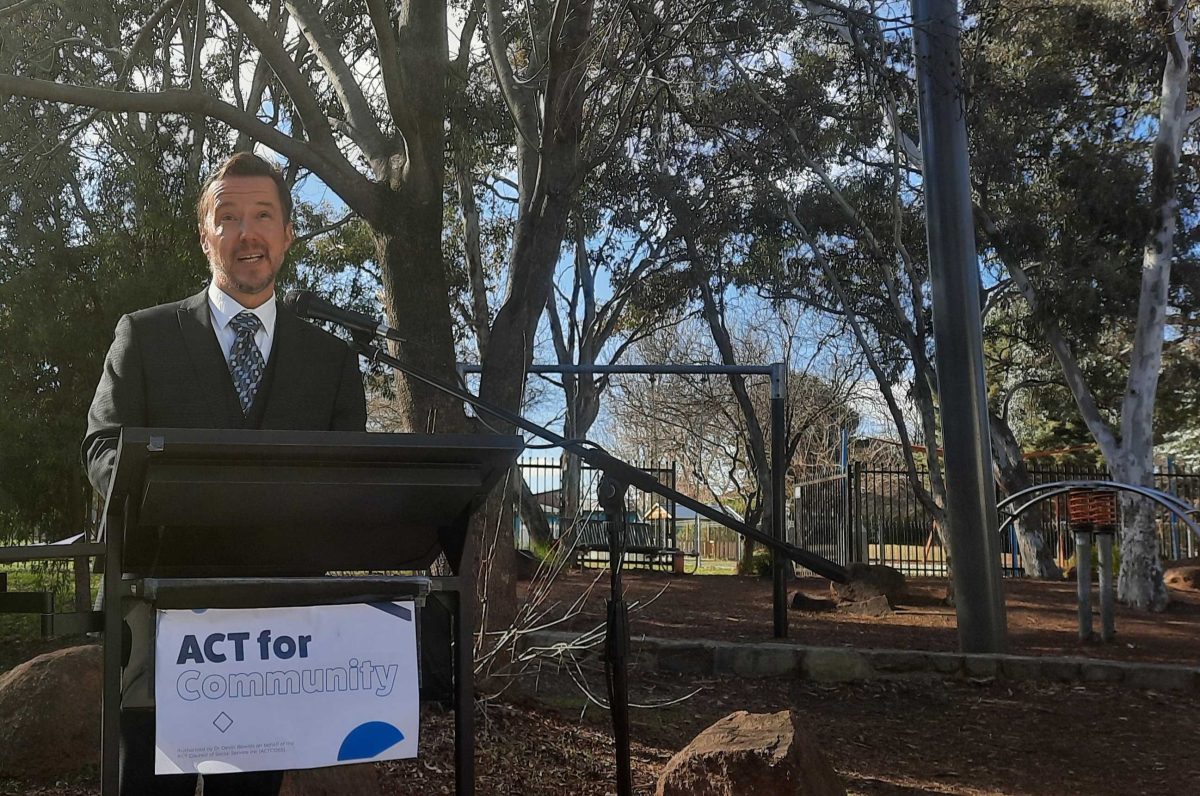
ACTCOSS CEO Dr Devin Bowles at the community sector campaign launch. Organisations are at breaking point. Photo: Ian Bushnell.
ACTCOSS CEO Devin Bowles says the sector has been working miracles to keep going, but it has reached the point where cross-subsiding services and donating time just aren’t going to cover the gaping cracks in services.
Unfortunately, the ACT Government is grappling with a deteriorating budget position due in part to falling GST revenue as consumers cut back their spending, but also in maintaining its infrastructure pipeline.
It’s a balancing act that means the community sector has to share in whatever savings the government can find.
That doesn’t wash with Dr Bowles, who argues that a 30 per cent increase to bring spending in line with population increase would only marginally impact the Budget, and it must grate when the government admits losses such as the $77 million written off from a failed digital HR project.
But he also wants spending to be indexed to population so the sector can stop going backwards.
Over the years, governments everywhere have outsourced or leant more heavily on community organisations and charities to deliver services. Many of them have turned into quasi-agencies, funded by government and private donations, both of which have been drying up.
What government has to contemplate is what happens if long-running services fold, leaving vulnerable Canberrans out in the cold.
That will create even more problems that, inevitably, the government won’t be able to ignore.
The fact is government can’t really afford to let them fail.
Dr Bowles is too diplomatic to say the government has got its priorities wrong or to name areas from which that extra funding could come, but he believes it has options.
Traditionally, this is a Labor constituency, but in launching a campaign in the shadows of the election, the pitch is unashamedly directed at the other parties and Independents.
It’s a well-connected constituency that Labor should not take for granted, particularly with the Opposition eyeing big-ticket spending such as light rail and a well-organised and sympathetic Independents push that could result in a kingmaking crossbench.
The community sector’s plight should not have gotten this far, and a wealthy town like Canberra should expect that whoever forms government in October can be supported enough to do its job properly on our behalf.












